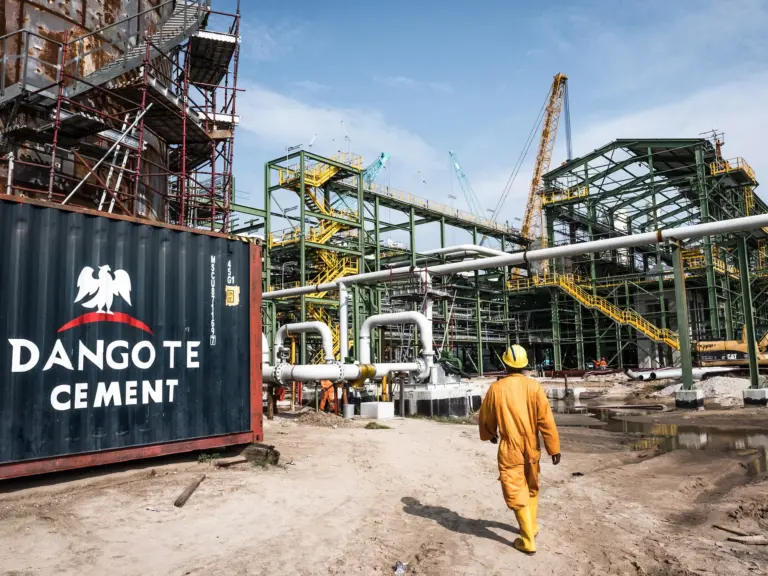When Aliko Dangote recalls his early days in business, he doesn’t speak first of billions but of small daily earnings. Trading cement in the 1990s gave him about 7,000 naira a day—enough to buy his first Mercedes and lay the foundation of an empire. Few could have imagined that those modest profits, funded by a $3,000 loan from his uncle, would one day evolve into Africa’s largest private refinery.
Dangote’s entrepreneurial instincts were shaped long before his own ventures began. His great-grandfather amassed wealth trading peanuts and other commodities with colonial Britain, creating a family tradition of risk-taking in markets where others hesitated. Born and raised in Kano, northern Nigeria, Dangote picked up the mantle in the 1970s—trading cotton, cashew, cocoa, and sesame seeds before moving into trucking and cement imports.
His big break came in 2010, when Dangote Cement listed on the Nigerian Stock Exchange with a $13.8 billion valuation. The company expanded into several African nations, cementing his reputation as a continental industrialist. But cement was only the beginning. A year later, he launched the project that would test his resilience: building a refinery on the outskirts of Lagos, beside his fertilizer plant.
Constructing the world’s largest single-train refinery proved more grueling than profitable—at least at first. “From the beginning, we realized nobody could provide us with the services we needed,” Dangote said from his Lagos residence. “You had to build everything yourself.” Looking back, even he admits the challenges nearly outweighed the reward: “If I knew what I was going to go through, I wouldn’t have tried it.”
His battles with Nigeria’s oil industry were not new. As early as 2007, Dangote had tried to acquire two rundown government-owned refineries in a controversial $721 million bid. Public backlash forced the government to cancel the sale, leaving the facilities to decay further. Decades later, those refineries remain largely defunct—Port Harcourt’s tanks rusting while nearby vendors hawk bootleg fuel in plastic bottles.
Against that backdrop, Dangote’s privately built refinery has changed the conversation. With a capacity of 650,000 barrels per day, it can meet Nigeria’s fuel needs and still export surplus. The refinery’s operations have already helped Nigeria, for the first time in 30 years, become a net exporter of petroleum products.
Today, the billionaire industrialist is worth more than $28 billion, according to Bloomberg’s Billionaire Index—his fortune swelling by $1 billion in just three months as the refinery ramps up output. Critics argue that government connections gave him an unfair head start, but Dangote insists he simply moved faster where others hesitated: “If you call first movers monopolists, you’ll never build a manufacturing base. And without that, you’ll never build a country.”
From selling peanuts to powering Africa’s largest refinery, Dangote’s journey shows how determination—and the courage to build where the state has failed—can transform not just a fortune, but an entire nation’s industrial path.


